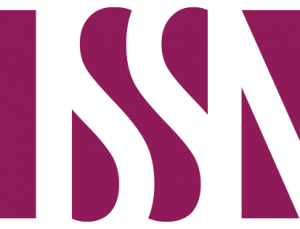KNOWLEDGE-BASED VARIABLES IN THE SUSTAINABILITY OF PRIVATE UNIVERSITIES IN EAST JAVA
 Abstract views: 176
,
Abstract views: 176
,
 PDF downloads: 202
PDF downloads: 202
Abstract
Organisational sustainability is closely linked to the organisation's brand image in the eyes of stakeholders and the wider community. Each organisation can build a positive image through effective communication or innovative marketing models, one of which is social media. Social media is the most appropriate means of communication and marketing for universities to recruit prospective students. This study analysed the role of knowledge-based variables in building higher education sustainability, as universities are knowledge institutions and always maintain or develop knowledge through research activities. Knowledge-based variables include Intellectual Capital, University Management Intelligence, and Social Media. Based on this, this research aimed to find out the significance of knowledge-based variables in the sustainability of private universities in East Java. This research focused on human behaviour by using a survey with a quantitative approach and data collected through a questionnaire. This study concludes that Social Media Marketing does not reduce the impact of intellectual capital on private universities' sustainability in East Java. Social Media Marketing does not reduce the impact of the University Managerial Intelligence on the sustainability of private universities in East Java.
References
Acedo, F. J., Barroso, C., & Galan, J. L. (2006). The resource-based theory: Dissemination and main trends. Strategic Management Journal, 27(7), 621–636. https://doi.org/10.1002/smj.532
Adams, C. (2013). Sustainability reporting and performance management in universities Challenges and benefit. Sustainability Accounting, Management and Policy Journal, 4(3), 384–392.
Akonkwa, D. B. M. (2009). Is market orientation a relevant strategy for higher education institutions?: Context analysis and research agenda. International Journal of Quality and Service Sciences, 1(3), 311–333. https://doi.org/10.1108/17566690911004230
Andreou, A., & Bontis, N. (2007). A model for resource allocation using operational knowledge assets. The Learning Organization, 14(4), 345–374. https://doi.org/10.1108/09696470710749272
App, S., & Büttgen, M. (2016). Lasting footprints of the employer brand: can sustainable HRM lead to brand commitment? Employee Relations, 38(5), 703–723. https://doi.org/10.1108/ER-06-2015-0122
Assimakopoulos, C., Antoniadis, I., Kayas, O. G., & Dvizac, D. (2017). Effective social media marketing strategy: Facebook as an opportunity for universities. International Journal of Retail & Distribution Management, 45(5), 532–549. https://doi.org/10.1108/IJRDM-11-2016-0211
Barclay, R. O., & Murray, P. C. (2000). What is knowledge management? Knowledge Praxis, 1–10. https://doi.org/10.1108/01435129910291175
Bondarouk, T., Ruël, H., Axinia, E., & Arama, R. (2013). What Is the Future of Employer Branding through Social Media? Results of the Delphi Study into the Perceptions of HR Professionals and Academics. Social Media in Human Resources Management, 23–57. https://doi.org/10.1108/s1877-6361(2013)0000012019
Bontis, N., Dragonetti, N., Jacobsen, K., & Ross, G. (1999). The Knowledge Toolbox: Manage Intangible Available to Measure and A Review of the Tools Resources. European Management Journal, 17 (4)(4), 391–402.
Bornemann, M., & Wiedenhofer, R. (2014). Intellectual capital in education: A value chain perspective. Journal of Intellectual Capital, 15(3), 451–470. https://doi.org/10.1108/JIC-05-2014-0060
Ceulemans, K., Lozano, R., & Alonso-Almeida, M. del M. (2015). Sustainability reporting in higher education: Interconnecting the reporting process and organisational change management for sustainability. Sustainability (Switzerland), 7(7), 8881–8903. https://doi.org/10.3390/su7078881
Cheong, R. K. F., & Tsui, E. (2011). From skills and competencies to outcome-based collaborative work: Tracking a decade’s development of personal knowledge management (PKM) models. Knowledge and Process Management, 18(3), 175–193. https://doi.org/10.1002/kpm.380
Coleman, S. (2007). The Role of Human and Financial Capital in the Profitability and Growth of Women-Owned Small Firms. Journal of Small Business Management, 45(3), 303–319. https://doi.org/DOI: 10.1111/j.1540-627X.2007.00214.x
David, F. R., & David, F. R. (2016). Manajemen Strategik Suatu Pendekatan Keunggulan Bersaing. Salemba Empat.
Dmochowski, J. E., Garofalo, D., Fisher, S., Greene, A., & Gambogi, D. (2016). Integrating sustainability across the university curriculum. International Journal of Sustainability in Higher Education, 17(5).
Dumay, J. (2009). Reflective discourse about intellectual capital: Research and practice. Journal of Intellectual Capital, 10(4), 489–503. https://doi.org/10.1108/14691930910996607
Dumay, J., & Guthrie, J. (2012). IC and Strategy as Practice. International Journal of Knowledge and Systems Science, 3(4), 28–37. https://doi.org/10.4018/jkss.2012100103
Dutot, V., Galvez, E. L., & Versailles, D. W. (2016). CSR communications strategies through social media and influence on e-reputation: An exploratory study. Management Decision, 54(2), 363–389. https://doi.org/10.1108/MD-01-2015-0015
Earl, M. (2001). KM strategy taxonomy.pdf. Journal of Management Information Systems, 18(1), 215–233.
Fatoki, O. (2011). The impact of human, social and financial capital on the performance of small and medium-sized enterprises (SMEs) in South Africa. Journal of Social Sciences, 29(3), 193–204. https://doi.org/10.1080/09718923.2011.11892970
Fonseca, A., Macdonald, A., Dandy, E., & Valenti, P. (2011). The state of sustainability reporting at Canadian universities. International Journal of Sustainability in Higher Education, 12(1), 22–40. https://doi.org/10.1108/14676371111098285
Hamid, S., Taha, M., Sulaiman, I. H., Anwar, R. M., & Norman, A. A. (2017). Social Media for Environmental Sustainability Awareness in Higher Education. International Journal of Sustainability in Higher Education, 18(4). https://doi.org/10.1108/14676371311312905
Indrajit, R. E. (2011). Peranan Teknologi Informasi Pada Perguruan Tinggi. Aptikom. https://doi.org/10.1017/CBO9781107415324.004
Indrasari, M, & Syamsudin, N. (2017). The Influence Of Learning Motivation, Teaching Methods, Education Facilities of Students Achievement. Proceeding 14th ADRI 2017, 541.
Indrasari, M, Syamsudin, N., Purnomo, B., & Yunus, E. (2018). Pengaruh Budaya Organisasi, Lingkungan Kerja, Gaya Kepemimpinan Terhadap Kepuasan Kerja Serta Dampaknya Terhadap Kinerja Dosen. AKADEMIKA JURNAL MANAJEMEN, AKUNTANSI DAN BISNIS, 16(1), 51–59.
Indrasari, Meithiana. (2017). The Effect Of Organizational Culture, Environmental Work, Leadership Style On The Job Satisfaction And Its Impact On The Performance Of Teaching In State Community Academy Bojonegoro. Sinergi: Jurnal Ilmiah Ilmu Manajemen, 7(1).
Indrasari, Meithiana, Newcombe, P., Eliyana, A., & Yunus, E. (2015). The influence of academic climate and individual creativity on lecturer competence in private university at Surabaya Indonesia. International Journal of Business and Management, 10(8), 127.
Indrasari, Meithiana, Syamsudin, N., Purnomo, R., & Yunus, E. (2019). Compensation, Organizational Communication, and Career Path as Determinants of Employee Performance Improvement. Humanities & Social Sciences Reviews, 7(4), 956–961.
Jose, S., & Chacko, J. (2017). Building a sustainable higher education sector in the UAE. International Journal of Educational Management, 31(6), 752–765.
Katrinli, A., Gunay, G., Celikdemir, D. Z., & Alpbaz, S. P. (2017). International Journal of Sustainability in Higher Education Article information : International Journal of Sustainability in Higher Education, 18(3). https://doi.org/10.1108/14676371311312905
Khan, R. H. (2013). Marketing Education Online: A Case study of New Zealand Higher Education Institutions. Procedia - Social and Behavioral Sciences, 103, 637–646. https://doi.org/10.1016/j.sbspro.2013.10.382
Kor, Y. Y., & Mahoney, J. T. (2004). Edith Penrose’s (1959) Contributions to the Resource-based View of Strategic Management. Journal of Management Studies, 41(1), 183–191. https://doi.org/10.1111/j.1467-6486.2004.00427.x
Lopatta, K., & Jaeschke, R. (2014). Sustainability reporting at German and Austrian universities. Int. J. Education Economics and Development, 5(1), 66–90.
Lozano, R. (2011). The State of Sustainability Reporting in Universities. International Journal of Sustainability in Higher Education, 12(1), 67–78. https://doi.org/10.1108/14676371111098311
Lyapina, I., Sotnikova, E., Lebedeva, O., Makarova, T., & Skvortsova, N. (2019). Smart technologies: perspectives of usage in higher education. International Journal of Educational Management, 33(3), 454–461. https://doi.org/10.1108/IJEM-08-2018-0257
Marr, B., Gupta, O., Pike, S., & Roos, G. (2003). Intellectual capital and knowledge management effectiveness. Management Decision, 41(8), 771–781. https://doi.org/10.1108/00251740310496288
Massaro, M., Dumay, J., Garlatti, A., & Dal Mas, F. (2018). Practitioners’ views on intellectual capital and sustainability: From a performance-based to a worth-based perspective. Journal of Intellectual Capital, 19(2), 367–386. https://doi.org/10.1108/JIC-02-2017-0033
Merrill, N. (2011). Social media for social research: Applications for higher education communications. Higher Education Administration with Social Media, 25–48. https://doi.org/10.1108/S2044-9968(2011)0000002005
Moore, M. (2012). Interactive media usage among millennial consumers. Journal of Consumer Marketing, 29(6), 436–444. https://doi.org/10.1108/07363761211259241
Nawaz, T., & Haniffa, R. (2017). Determinants of financial performance of Islamic banks: an intellectual capital perspective. Journal of Islamic Accounting and Business Research, 8(2), 130–142. https://doi.org/10.1108/JIABR-06-2016-0071
O’Shannassy, T. (2008). Sustainable competitive advantage or temporary competitive advantage: Improving understanding of an important strategy construct. Journal of Strategy and Management, 1(2), 168–180. https://doi.org/10.1108/17554250810926357
Pedrini, M. P. (2007). Human capital convergences in intellectual capital and sustainability reports. Journal of Intellectual Capital, 8(2), 346–366. https://doi.org/10.1108/14691930710742880
Rambaud, A., & Richard, J. (2015). The “Triple Depreciation Line” instead of the “Triple Bottom Line”: Towards a genuine integrated reporting. Critical Perspectives on Accounting, 33, 92–116. https://doi.org/10.1016/j.cpa.2015.01.012
Sanusi, Z. A., & Khelghat-Doost, H. (2008). Regional centre of expertise as transformational platform for sustainability: A case study of Universiti Sains Malaysia, Penang. International Journal of Sustainability in Higher Education, 9(4), 487–497. https://doi.org/10.1108/14676370810905580
Sekaran, U. (2003). Research Methods for Business: A Skill-Building Approach (4th ed.). John Wiley & Sons.
Sigalas, C. (2015). Competitive advantage: the known unknown concept. Management Decision, 53(9), 2004–2016. https://doi.org/10.1108/MD-05-2015-0185
Sizer, J. (2001). Research and the knowledge age. Tertiary Education and Management, 7(3), 227–242. https://doi.org/10.1080/13583883.2001.9967055
Sternberg, R. (1997). Managerial intelligence: Why IQ isn’t enough. Journal of Management, 23(3), 475–493.
Stojanovic, I., Andreu, L., & Curras-Perez, R. (2018). Effects of the intensity of use of social media on brand equity: An empirical study in a tourist destination. European Journal of Management and Business Economics, 27(1), 83–100. https://doi.org/10.1108/EJMBE-11-2017-0049
Susilo, D, Prabowo, T., & Putranto, T. (2019). Communicating Secure Based Feeling: Content Analysis on Indonesian Police Official Account. International Journal of Engineering and Advanced Technology. https://doi.org/10.35940/ijeat.f8377.088619
Susilo, Daniel, & Putranto, T. D. (2018). Indonesian Youth on Social Media: Study on Content Analysis. https://doi.org/10.2991/sshr-17.2018.15
Teodorescu, D. (2006). Institutional researchers as knowledge managers in universities: Envisioning new roles for the IR profession. Tertiary Education and Management, 12(1), 75–88. https://doi.org/10.1007/s11233-005-4069-0
Todericiu, R., & Şerban, A. (2015). Intellectual Capital and its Relationship with Universities. Procedia Economics and Finance, 27(15), 713–717. https://doi.org/10.1016/s2212-5671(15)01052-7
Tung, K. (2018). Memahami Knowledge Management. Penerbit Indeks.
Vrontis, D., El Nemar, S., Ouwaida, A., & Shams, S. M. R. (2018). The impact of social media on international student recruitment: the case of Lebanon. Journal of International Education in Business, 11(1), 79–103. https://doi.org/10.1108/JIEB-05-2017-0020
Wernerfelt, B. (1984). A Resource-based View of the Firm. Strategic Management Journal, 5, 171–180. https://doi.org/10.1002/smj.4250050207
Wiig, K. M. (1997). Integrating intellectual capital and knowledge management. Long Range Planning, 30(3).
Yunus, E., Susilo, D., Riyadi, S., Indrasari, M., & Putranto, T. (2019). The Effectiveness Marketing Strategy for Ride Sharing Transportation: Intersecting Social Media, Technology, and Innovation. Entrepreneurship and Sustainability Issues, 7(2), 1424–1434.
Zhou, A. Z., & Fink, D. (2003). The intellectual capital web:A systematic linking of intellectual capital and knowledge management. Journal of Intellectual Capital, 4(1), 34–48. https://doi.org/10.1108/14691930310455379
Copyright (c) 2021 Sinergi : Jurnal Ilmiah Ilmu Manajemen

This work is licensed under a Creative Commons Attribution-NonCommercial-ShareAlike 4.0 International License.
































